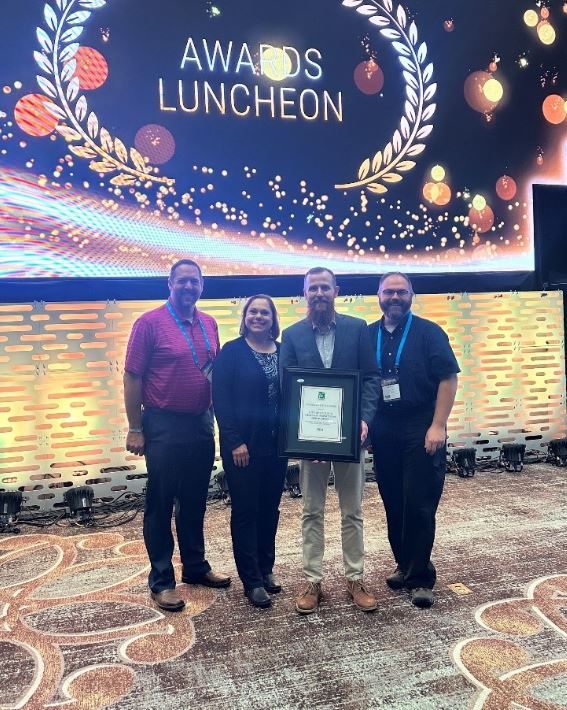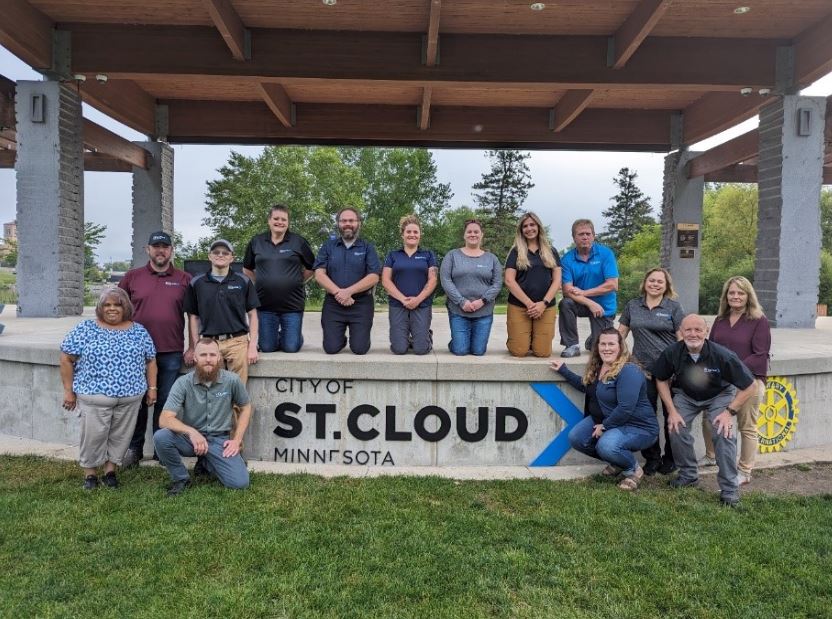
Collaboration, Creativity and Commitment: St. Cloud’s Health Department Earns 2023 Code Council Community Service Award
The City of St. Cloud, Minnesota’s Health & Inspections Department was honored with the International Code Council's 2023 Community Service Award for its collaborative programs and activities that expand code education and code enforcement, while improving communities.
With a population of nearly 70,000, the City of St. Cloud, Minnesota is relatively small compared to its nearby neighbor of Minneapolis-St. Paul, just 65 miles southeast. Located on both sides of the Mississippi River, the city is considered largely a college town, home to St. Cloud State University as well as St. Cloud Technical and Community College and Rasmussen College.
The mission of the city’s Health & Inspections Department is to preserve and revitalize the health and safety of this community. With a dedicated team of 14, they are mighty and resolute in their mission to ensure quality of life for residents. The department was able to conduct nearly 9,000 inspections across all divisions, Animal Control, Housing & Code Enforcement and Environmental Health, last year and they are on track to complete a similar number this year.
That said, it’s the group’s innovative, collaborative and proactive approach to inspections and enforcement that truly captures the essence of this organization’s influence and it is what earned them the International Code Council’s 2023 Community Service Award.

The Importance of Being Educated on Building Codes
The high prevalence of rental housing (nearly 15,000 dwelling units) was proving to be a challenge – and an opportunity – for the six inspectors assigned to the Housing & Code Enforcement division.
Brian Fleming, Code Compliance Specialist II with the Housing and Code Enforcement Division, recalled, “We wanted to proactively address the challenge, so we came up with a comprehensive rental inspection and education program for property owners and managers on code requirements – basically, how to be a good landlord.”
To build the program, the department collaborated with law enforcement, the fire department and human services. He continued, “The first step was outreach and education to rental property owners to make sure they understand the code requirements.”
The program outlines consequences for landlords and owners who don’t address code violations and property maintenance issues. For instance, if a rental property gets a series of financial penalties (administrative citations) for code violations, and the landlord continues to not maintain the property, they can lose their rental license.
“If a tenant at a property is cited for some criminal activity occurring at the property, we can hold the landlord responsible, and we give them four chances to address the activity occurring at their property,” said Fleming.

When a landlord loses their rental license, they are only eligible for a “provisional license”, which is described as a probationary status for their rental property. Under the provisional license, the landlord must submit monthly reports to the city and avoid any further code violations. If the landlord is unable to demonstrate they can properly maintain the property under the provisional license, they may be required to vacate the property for a specified period.
Fleming added, “Through this program, we are on par with larger jurisdictions like the Twin Cities and Bloomington in terms of the robustness of our inspections. We’ve got a long way to go, but the program is working and we’re making progress.”
This rental training program has recently moved to a virtual/hybrid format, which has allowed the department to reach a broader audience, including out-of-state property owners who have investment properties in St. Cloud.
Embracing Diversity in Their Community
The City of St. Cloud is home to a large East African community, largely from war-torn Somalia. Many of these individuals do not speak English. A survey by the department found that the language barrier proved to be a significant problem when it came to food safety education and compliance.
Emily Herbst, Assistant Health Director for the City of St. Cloud said, “We noticed that a lot of restaurant owners in these communities were getting violations. We talked with many of the restaurant owners to understand the problem, only to find that many of these individuals were having difficulty accessing and understanding the required food safety training and certification courses, which were primarily offered in English.”
To address this, the jurisdiction partnered with a local business to offer a fully translated Certified Food Protection Manager course in Somali, including translation assistance for the exam.
“That’s been hugely successful with compliance,” said Herbst. “We now host two Somali-translated Certified Food Protection Manager trainings. To date, 13 establishments attended from St. Cloud and every attendee passed the final exams to receive certification.”

A second, follow-on concern was the education required to maintain certification. She continued, “Many online educational credits in Minnesota are not translated. Now, we’re looking to see if we can modify our online training modules to support language credits.”
Learn more about the Code Council’s annual awards and view past recipients here.





